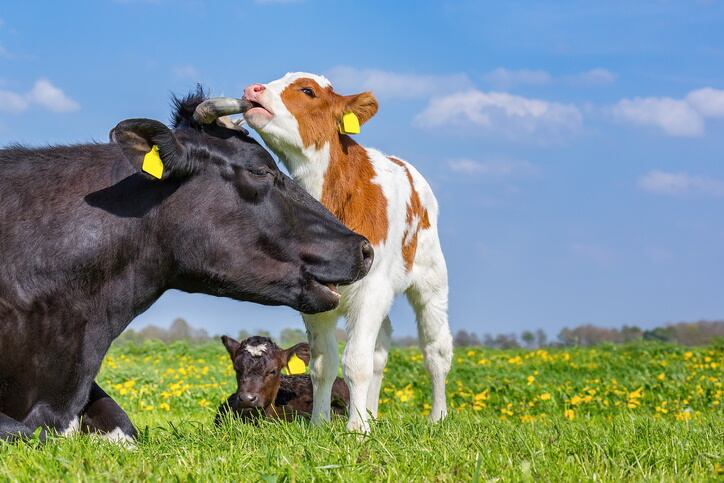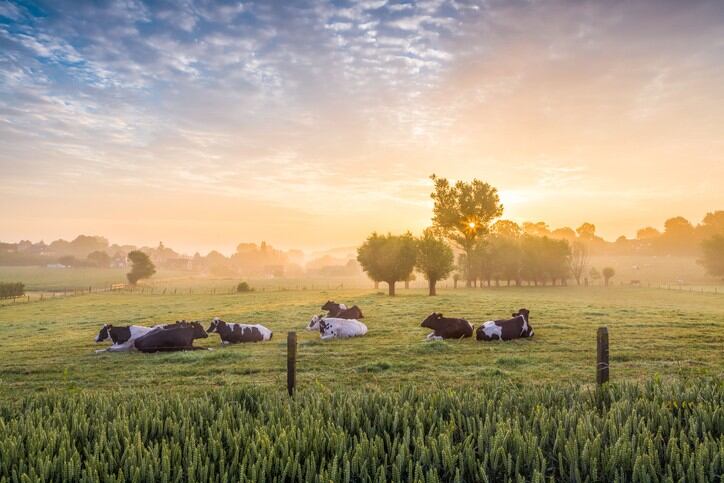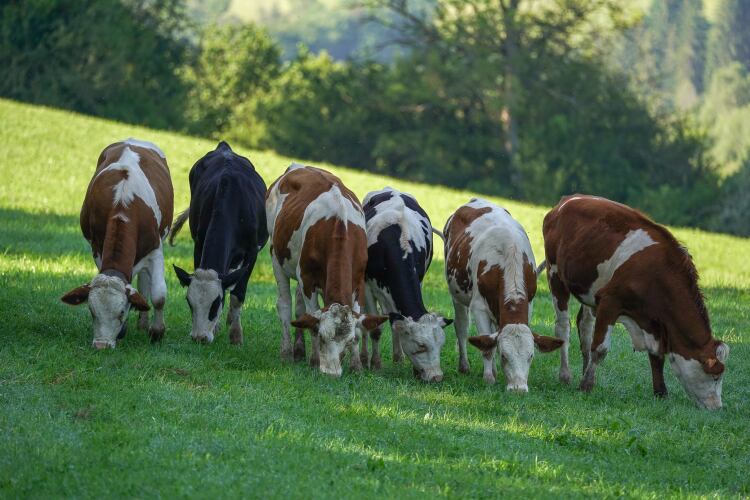The study comes out of Agriculture Victoria Research facility Ellinbank SmartFarm and it measured the benefits of a daily dose of Mylo probiotic, which is produced by argi-bio company Terragen. The liquid microbial feed supplement was administered to cows over a 40-day period.
Researchers found cows who weren’t fed Mylo – the control group – emitted 7.5% more methane per litre of milk produced. The reflected the benefit of both lower methane production and higher milk yields. The control group produced 4.4% more methane than cattle who were fed Mylo daily.
According to Terragen, the supplement cuts emissions by the equivalent of 100 tonnes of carbon dioxide for every 350-cow dairy farm per year. This equates to about a third of a tonne per cow annually.
It offers an animal health benefit. Cows that received the baseline dose of 10ml of Mylo a day gained 21% more weight than the control group over a five-week period.
"There are a number of animal health benefits that farmers report [but] they have not been the subject of a controlled scientific trial. [Anecdotal] animal health benefits include reduced lameness, less mastitis and reduced use of chemicals... We are currently part way through an 18 month trails where we are measuring the broader impacts of Mylo," a Terragen spokesperson elaborated.
‘Huge potential’ for low impact dairy
The probiotic has been available in Australia for four years, where 60,0000 dairy cows and 80,000 calves are fed it each year. Terragen now sees opportunity to expand its uptake in the neighbouring New Zealand market.
Terragen General Manager New Zealand, Paul Grave, suggested the product has ‘huge potential’ for dairy farmers in the country.
“New Zealand is home to around 4.9 million cows and 11,000 dairy herds, which generate billions for the economy each year. But the sector has been challenged to change and adapt to the times. Mylo has been proven to help farmers become more sustainable and lift productivity,” he stressed.
Grave reflected on the ‘mounting pressure’ for farmers to reduce their emissions and also improve animal welfare. He also highlighted the safety of using the organic-certified feed supplement.
“Our probiotic is completely natural and chemical-free and doesn’t leave residue in the milk so it can be fed to livestock for years with no harm,” Grave suggested.
The company also claimed the solution is ‘cost effective’ for farmers, suggesting a return on investment of approximately 4:1.
A spokesperson for the group told DairyReporter: "Benefits are often seen immediately, but we generally allow 30 days for the product to take full effect. In the Ellinbank study we allowed 30 days before taking any methane measurements. The 4:1 [ROI] is calculated based on productivity gains."
Building on the science
The Ellinbank SmartFarm scientists will present their findings at the eighth International Greenhouse Gas & Animal Agriculture Conference in Orlando, Florida, next month.
The study builds on a previous body of research conducted by Terragen. The company’s Chief Scientist, Dr Martin Soust, has already shown cows fed on the supplementing ate less and produced up to 3.3% more milk, while calves put on the supplement gained 8% more weight and weaned up to ten days earlier.
“Previous research conducted at the University of Queensland showed our products work,” Dr Soust said. “The study at the Ellinbank SmartFarm shows that Mylo can reduce methane emitted by a cow, increase milk production, and improve feed conversion efficiency.”
Terragen is now planning further trials to find out whether higher doses could cut methane emissions further still.




